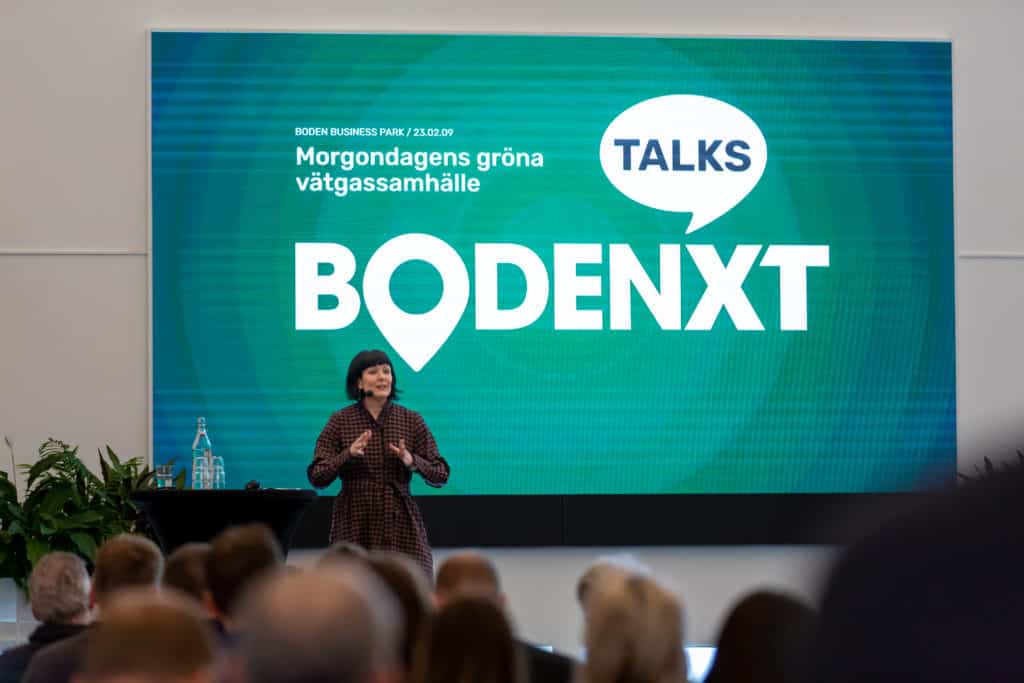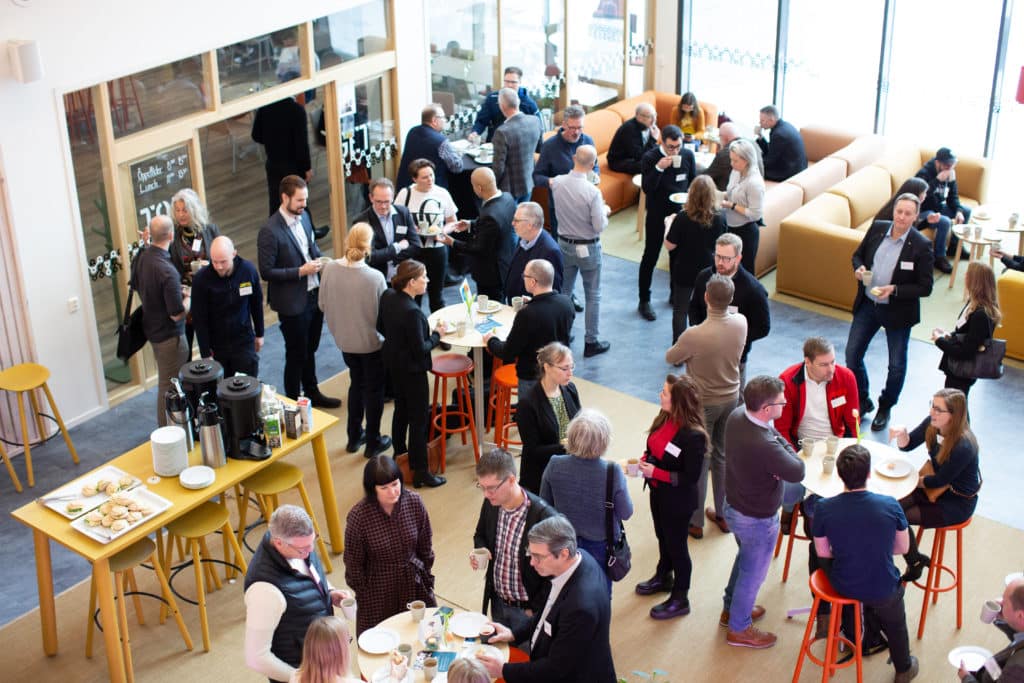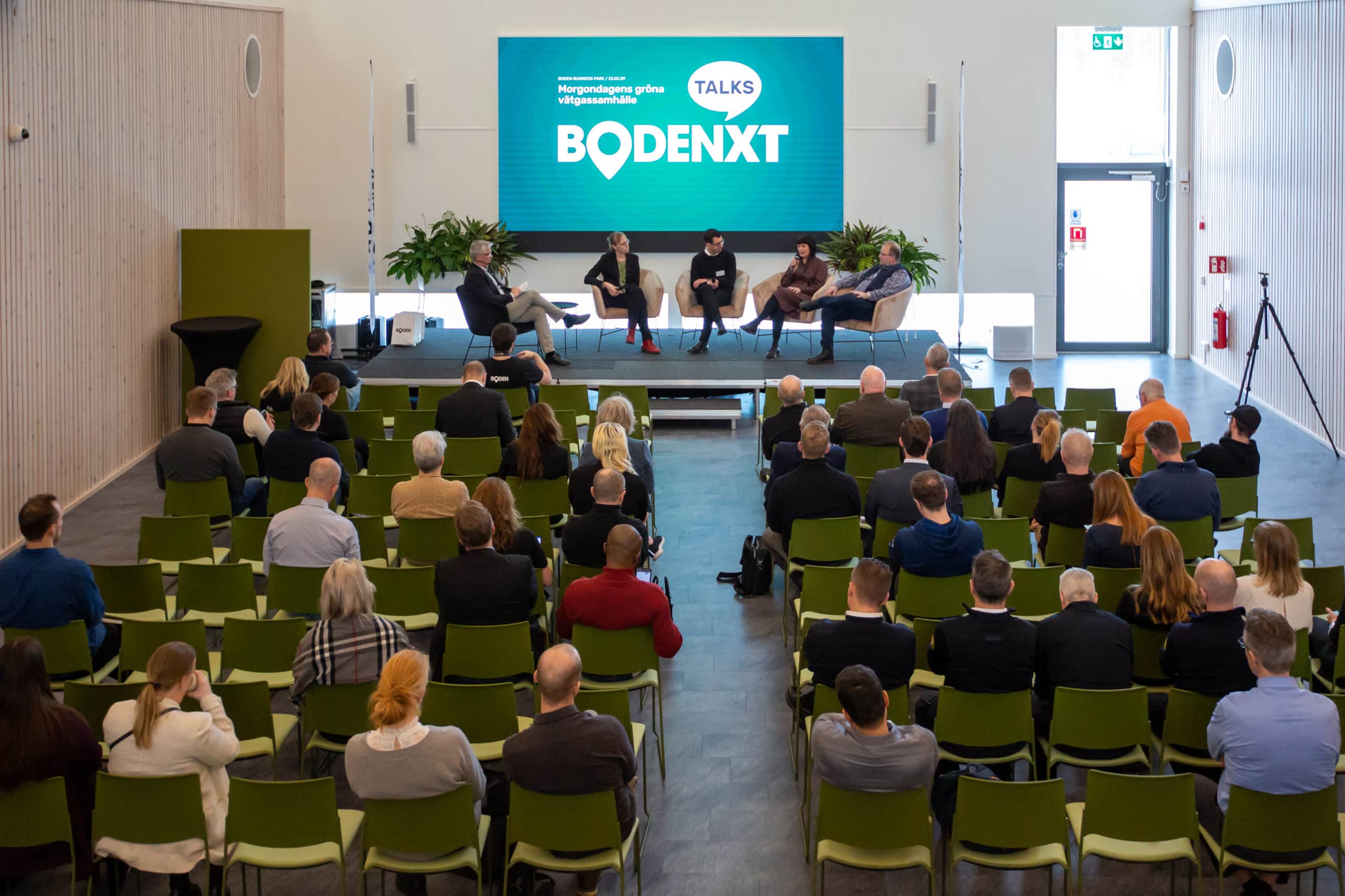Focus on the future of hydrogen in Boden
Press release from Bodenxt
In Sweden, Boden is identified as a node in a green hydrogen network. On 9 February, the spotlight was on hydrogen’s potential in the society of the future, during a well-attended event at Boden Business Park.
The world’s largest hydrogen plant is planned here in Boden. This means competitive advantages and opportunities for many stakeholders in both the municipality and the region. On 9 February, nearly 100 people gathered at Boden Business Park to hear from some of the region’s leading hydrogen experts. The focus was on the conditions in Boden, why so much is happening here right now, what it means for the region and how small and medium-sized enterprises can start thinking about hydrogen now. The event was organised by the municipality of Boden in collaboration with Boden Business Park.
– This is something that the whole world will need to do, and since we here in Norrbotten, together with Västerbotten, are leading the way, we are the ones leading the way. I am convinced that when we look back at this time, we will be able to draw parallels between our investments in hydrogen and earlier industrial investments such as the major expansion of the railway and the fibre network,” says Claes Nordmark, municipal councillor in Boden municipality.
Engaged speakers
Speakers during the day include all those who are passionate about the hydrogen issue.
Pedro Raposo, director of Power to X at AFRY, has been working on hydrogen since 2008. He has a degree in chemical engineering and has been involved as a project manager in several large-scale hydrogen plants. He has also acted as a hydrogen expert in various projects in Sweden. Pedro Raposo is currently leading AFRY’s Power-to-X business.
Cecilia Wallmark, Director of the CH2ESS hydrogen initiative at Luleå University of Technology and a recognized name in the hydrogen field worldwide. She has over 20 years of experience in the hydrogen and fuel cell technology area in Sweden, but also internationally.
Marita Nilsson, Technology Lead Electrolyzer Systems, H2 Green Steel. She is responsible for technical analysis, requirements definition and research strategy in electrolysis systems at H2 Green Steel. She has extensive experience from Scania, where she has worked as a product owner for battery systems and technical project manager for the development of fuel cell trucks.
Roland Skoog, owner of Skoog Fuel, which distributes fuel products in northern Sweden, also took part in the subsequent panel dialogue. He is one of many who have become interested in hydrogen in recent years and recently decided to invest in Oazer, which develops and sells hydrogen filling stations.
Background and future
During the day, hydrogen use was historically interwoven with where we are today and what opportunities it offers in the future, globally, regionally and locally.
Pedro Raposo explained, among other things, that the use of hydrogen itself is not very innovative, it has been going on for 100 years. The exciting challenge is the large scale and its potential applications.
– I see great potential in using hydrogen instead of electrification of rail transport, for example. We have fantastic conditions here in northern Sweden,” he says.
Free training
Cecilia Wallmark spoke about the importance of spreading knowledge about hydrogen. She pointed out a free training course available in both Swedish and English for those who want to learn more or for companies and organisations who want to introduce their staff to the subject. To increase competence at all levels, hydrogen is also being implemented in many of the university’s courses.

Marita Nilsson from H2 Green Steel described hydrogen as a swiss army knife – it can be used for a lot of things but it is not always the best tool.
– We will use hydrogen where it is cost-effective or where solutions are lacking today. We at H2 Green Steel want to be the first company in a new industry, and we’re going to do it in Boden. Then we can take that knowledge out into the world with Boden as a model,” she says.
Roland Skoog shared a more small-scale user and entrepreneurial perspective.
– I have been working with fuels for 37 years and I realise that we need to open our eyes and minds to the new transition. We cannot compare with what we have and have had but ask ourselves – what is the alternative when petrol and diesel disappear?
Competence
A recurring keyword to meet future hydrogen opportunities was from all speakers, especially access to skills. Not only to build and operate large-scale facilities, but also to service, control, train, regulate, secure and more. It also became clear that large scale and the need for public support is necessary.
There was a lot of interest from the audience and many questions. There was also a wide range of participants from different sectors and stakeholders. One of the participants was Nordion Energy, which works with infrastructure and climate-neutral distribution of gas.
– We are here because this is where it happens on a large scale. From our side there is an ambition and plan for a hydrogen network. But it’s opportunities and needs that rule,” says Björn Santana Arvidsson, Vice President at Nordion Energy.
Participants also included representatives from technology, development, vehicles and more.
– It’s exciting to learn more and broaden my horizons a bit in this area,” says Torbjörn Ferm, Zeppelin.
Johan Elfwing, ABB, also points out the importance of meeting others in the industry, which was also a direct call from the panel for further development.

The event was part of the Bodenxt Talks initiative, which was launched as a studio solution during the pandemic to broadcast in-depth dialogues on social change. This was the first Bodenxt talk to go live. More are planned for 2023.
Read more about Boden and hydrogen HERE.
Text and photo: KOMM/Bodens kommun
Originally published on 9 February.
Announcements are published as a service to readers. The sender is responsible for all content.
Announcements for publication can be submitted to pr***********@ar**************.com.
